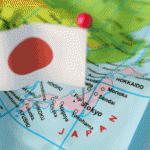Time To Buy Japanese Stocks?
 “Learn Japanese… you’ll be working for them someday.”
“Learn Japanese… you’ll be working for them someday.”
This suggestion was given to me back in the late 1980s by my high school Economics teacher. And at the time, it seemed like sage advice.
Japan had the strongest economy on the planet. They had the largest currency reserves of any country. Their stock market was going gangbusters. And Japanese manufacturers were considered the model for everyone else to follow.
But then it all fell apart…
In the early 1990s, a huge bubble in the Japanese stock market exploded. The Nikkei 225, which had more than quintupled during the 1980s, lost over 50% of its value in the first few years of the 1990s.
And today it remains 68% below its all time high of 38,916.
What happened?
The bubble burst when the Japanese Finance Ministry sharply raised interest rates to slow Japan’s overheating economy. While necessary at the time, this move led to a 20-year period of less than 1% annual real GDP growth for Japan.
But now it looks like the period of anemic growth is over and Japan is entering a new growth era.
Three months ago, the Japanese Parliament selected Shinzo Abe as their new Prime Minister in a landslide vote. Mr. Abe is a former Prime Minister and a vocal Japanese nationalist.
The key point though is how Mr. Abe won the election. He won by promising to employ aggressive economic and monetary policies designed to end Japan’s two decades of economic stagnation.
For example, he vowed to push through measures authorizing $120 billion in infrastructure and other emergency stimulus spending. He also promised to force the Bank of Japan to raise interest rates and weaken the value of the Yen.
And so far, he’s taking steps to make good on these promises…
One of Mr. Abe’s first act as Prime Minister was to urge Japan’s central bank to set an inflation target of 2% in order to start re-inflating the economy. To facilitate this policy and more, Mr. Abe has ousted Japan’s cautious chief central banker, Masaaki Shirakawa.
What’s more, Mr. Abe has secured approval for his more aggressive nominee to lead the Bank of Japan, Haruhiko Kuroda. Mr. Kuroda has said he is prepared to do “whatever it takes to escape from inflation.”
Most experts believe that with Kuroda at the helm, the Bank of Japan will begin pursuing a policy of aggressive quantitative easing. If so, Japan’s financial system is about to be flooded with liquidity.
And as we’ve seen in the US, a good portion of this newfound liquidity will likely find its way into the stock market. If that happens, Japanese share prices are poised to head significantly higher.
Now, at the moment, this scenario for a rising Japanese stock market is all just speculation. But you can see that events are beginning to unfold in a way that could make this scenario a reality.
Profitably Yours,
Robert Morris
Category: Foreign Market ETFs, What's Going On?




